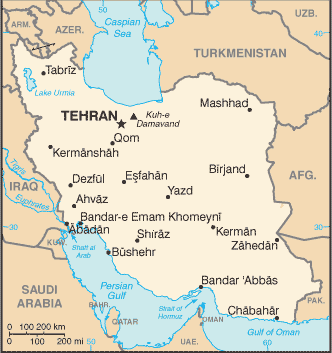John Glaser, January 31, 2012
The International Atomic Energy Agency’s (IAEA) three day negotiations with the Iranian government were “constructive,” according to Iranian news media.
“The negotiations between the two sides were held in a positive and constructive atmosphere,” an IAEA official was reported as saying. The two sides agreed to hold additional talks in the future.
The IAEA inspectors met with Iranian officials to discuss the alleged military dimension to Iran’s nuclear program. Some reports claimed that the IAEA team was granted permission to inspect all of Iran’s nuclear sites, even though that was not the purpose of the visit.
Still, U.S. and Israeli officials continue to discuss the potential for a preemptive military strike on Iran. The head of Israel’s intelligence service secretly visited Washington last week to discuss Iran’s nuclear program, and Senator Dianne Feinstein referred to that visit during a committee hearing on Tuesday in the context of a question about the likelihood of possible pre-emptive military action by Israel against Iran’s nuclear sites.
Israeli President Shimon Peres on Tuesday reiterated that “no option should be excluded against the program of Iran, which seeks to acquire weapons of mass destruction.”
Iran denies any intention to build nuclear weapons and there is yet no evidence of any nuclear weapons program. All 16 U.S. intelligence agencies concluded in 2007, and again in 2011, that there is no military dimension to Iran’s nuclear program. And despite the hyperbolic reporting on it, the latest report from the IAEA said, “the Agency continues to verify the non-diversion of declared nuclear material.”
As Adm. Dennis Blair, Obama’s former director of national intelligence, told Congress in March 2009, “We judge in fall 2003 Tehran halted its nuclear weapons design and weaponization activities” but that Tehran “is keeping open the option to develop them.” This is likely a deterrence strategy, as opposed to a desire to actually attain nuclear weapons, which would gain Iran even more international condemnation.
The talks between IAEA officials and Iran will determine whether the P5+1 (the five permanent members of the UN Security Council, plus Germany) can resume negotiations with Iran. But an unprecedented U.S.-led sanctions regime, a covert war, and continuous U.S.-Israeli threats may win out over diplomacy.





No comments:
Post a Comment